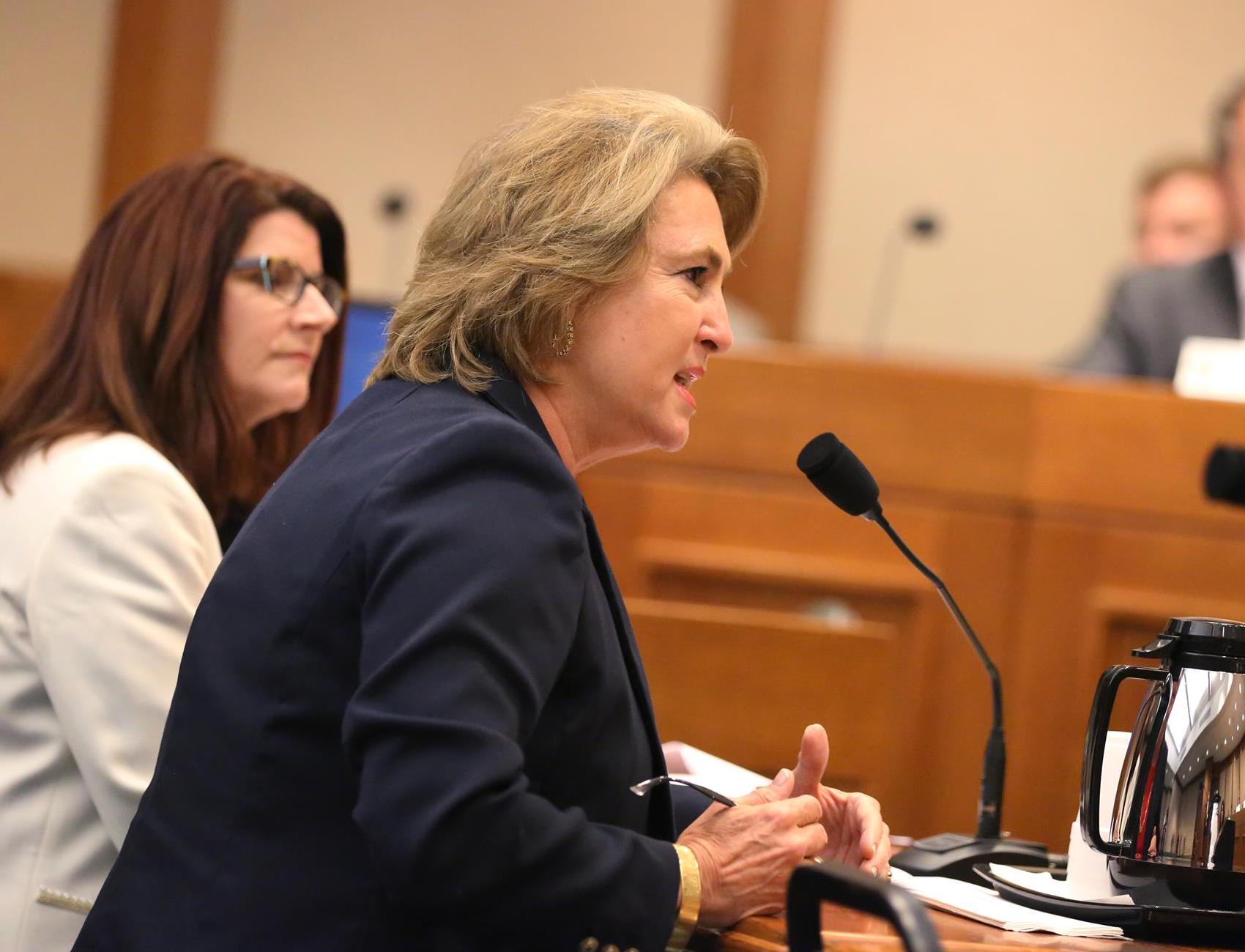What Kim Ogg Gets Wrong About Work, Poverty, and Crime
The attitude behind the Harris County district attorney’s message to ‘put down your gun and pick up an employment application’ is outdated.

This piece is a commentary, part of The Appeal’s collection of opinion and analysis on important issues and actors in the criminal legal system.
At a community conversation held in Houston’s Third Ward last summer, Harris County District Attorney Kim Ogg said she wants to send a message: “Put down your gun and pick up an employment application.” The video received hundreds of comments after activist Shaun King posted it on Facebook. Many responses focused on how her remarks seemed tone deaf from a prosecutor who was elected to bring fairness and equity to Harris County’s criminal legal system.
“The idea of just putting the guns down and picking up a job application sounds innocent, but it’s one of the long-living white supremacist ideas that completely ignores the many barriers put in place for POC [people of color], especially those with backgrounds that her office unnecessarily charges,” Monique Joseph, a field organizer with Texas Advocates for Justice, told The Appeal in a text message. ”Her comment is ultimately condescending and feeds into the stereotype that Black men don’t want to work and, therefore, deserve to be treated harshly by the system.”
Ogg’s office declined to comment for this commentary.
The idea that there is a connection between criminal behavior and unemployment is a long-held tough-on-crime trope, premised on the idea that employment is always a gateway out of poverty.
But Matthew Desmond, the author of “Evicted: Poverty and Profit in the American City” and a professor of sociology at Princeton University, has argued that jobs are often not enough to pull people out of poverty. Many jobs simply don’t pay enough. In Houston, although unemployment has fallen thanks to plentiful jobs, poverty has not decreased substantially and remains higher than the national average. The DA’s office doesn’t control economic stability, but it should reflect attitudes more in line with economic realities: People are working, but they don’t make enough. They may also have a hard time finding well-paying work as a result of a criminal record.
And although most existing studies on links between poverty and criminal activity focus on property crimes like theft, it’s not completely clear that unemployment or underemployment leads to violence. Bruce Western, a professor of sociology at Columbia University and a co-director of the Justice Lab, has argued that any links between poverty and violence are best attributed to systemic fragility overall, rather than individual choice: “Instead of poor individuals being motivated to violence, poor contexts structure social interaction in a way that makes violence more likely.”
Poverty in Houston also affects Black communities more than white ones. When Ogg was elected in 2016 in a countywide blue wave, she promised to work to reduce racial disparities in prosecutions and sentencing. And, to be fair, she has done better than her Republican predecessors. She has decriminalized marijuana possession and advocated for a “smart on crime” approach that is a departure from the historical aggressiveness of the Harris County criminal legal system, which was better known for sending people to “Old Sparky” than helping people through diversion programs. As part of the “progressive prosecutor” movement, Ogg has striven to bring a new face to an office that was considered particularly unforgiving, even by Texas standards.
But Ogg’s office continues to replicate many of the mistakes of the past, particularly when it comes to racial disparities. For example, charging and booking data reflects racially disproportionate charging practices. The top charge by booking data was the possession of a controlled substance under a gram (about the size of a pack of sugar), and 43.7 percent of those bookings were Black people, according to a report from Grassroots Leadership and Texas Advocates for Justice. In the most recent forum, Ogg also did not commit to stop prosecuting personal use drug possession.
Like prosecutors in many cities, Ogg has frequently blamed gang members for gun violence, using this justification as a way to argue in favor of asset forfeiture and seeking gang enhancements. A report by the Policing and Social Justice Project at Brooklyn College points out that labeling community members as gang members can have a number of negative effects, including overpolicing, increased prosecution, and difficulty finding housing and employment. Instead of arrests, the report calls for the creation of targeted youth services outside the criminal legal system to break the cycle of violence, such as “credible messenger” programs, trauma counseling, social inclusion strategies, and jobs for those most at risk of involvement in violence.
Ogg has continued to work to oppose “gang violence,” a topic that is deeply rooted in her work with the first gang task force in the state and as part of Crime Stoppers, a nonprofit organization that works with victims and runs a tip line for people to report crimes in their area. (Crime Stoppers pays cash rewards up to $5,000 for tips that lead to felony convictions.)
In this light, Ogg’s comments in the Third Ward are troubling because they represent an outdated attitude about who is committing crimes and what kind of people they are.
Jessica Pishko is a writer and researcher on sheriff and prosecutorial accountability.
